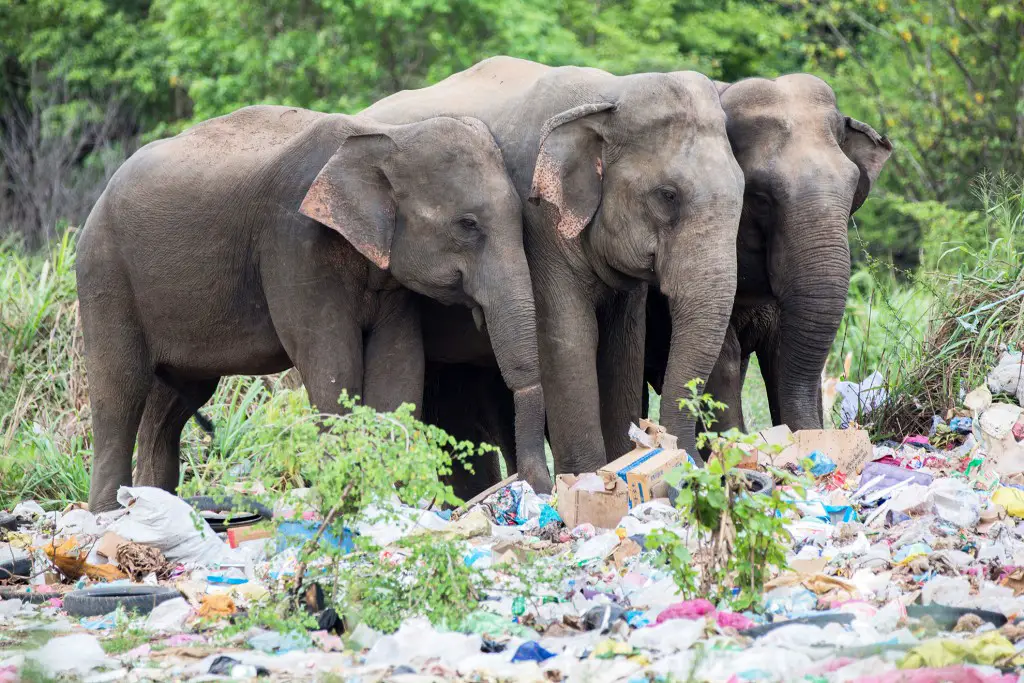Plastic Pollution Kills Elephant In India, Highlighting Extent Of Environmental Crisis

By Amanda Froelich Truth Theory
Did you know? Every year, humans throw away enough plastic to circle the globe four times. That’s a lot of waste, right? Unfortunately, much of that plastic makes its way to the oceans. There, it either contaminates waterways or chokes — and sometimes kills — wildlife.
The reality is a sad one. Unfortunately, little is being done to change it. Perhaps if people were informed about a recent development, one involving an elephant in Asia, they would take steps to reduce their use and dependence of the non-biodegradable substance.
In early January, a 20-year-old elephant was found approximately one kilometer away from a sewage treatment plant near Valiyanavattom, in India. The post-mortem examination of the carcass revealed that the pachyderm died after eating plastic. The tough material blocked its alimentary canal, resulting in internal bleeding and failure of the vital organs.
Though this is the first documented case of an elephant dying due to plastic ingestion since a ban of the material was passed in 2016, it is not uncommon for wildlife officials to find plastic in the mammals’ dung. This signifies that the crisis is worse than many imagined.
Said Georgi P Mathachen, field director of the forest department: “Plastic waste is a common sight after the season [pilgrimage] all along the route from Pamba to Sannidhanam, Azhutha to Pamba and other forest routes. Though the cleaning-up is happening along the routes after the season, the plastic that moves to interior areas are posing a threat to the wildlife.”
The elephants are attracted to food waste, especially packaged foods that contain salt. In 2016, the forest department filed an affidavit before the high court after a Sambhar deer died after consuming plastic. Following this development, the high court imposed a total plastic ban. However, wildlife officials are still finding excessive amounts of plastic bottles and packets dumped in and around the area.
Despite good intentions, the forest department has actually been blamed for the elephant’s death. Said A Padmakumar, president of the Travancore Devaswom Board: “In the case of the elephant that died, three-metre long plastic sheet used by shopkeepers at Valiyanavattom and Cheriyanavattom was found in its intestine. The shops are leased out by the forest department. They are not doing anything to ensure that plastic waste is properly disposed of.”
Activists can do their part to benefit the environment, future generations and wildlife by reducing their use of plastic. Ways to do this include taking reusable bags to the grocery store, using glass jars or reusable containers to store food, and recycling non-biodegradable materials whenever possible.
What are your thoughts? Please comment below and share this news!
Source: Times of India
Image Credit: IBanPlastic
Leave Comment: